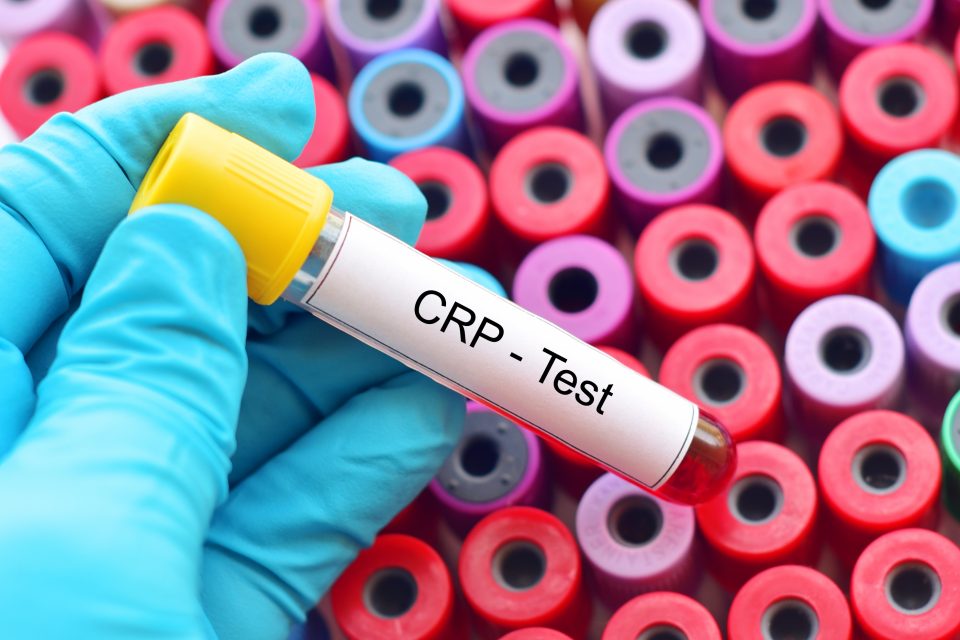
High-sensitivity C-reactive protein (hsCRP) levels were associated with increased risk for suffering averse cardiac events following acute coronary syndromes (ACS), a recent paper in JAMA Cardiology reported.
The analysis looked at the VISTA-16 randomized clinical trial, which included 5,145 patients presenting with ACS. Patients were assigned to receive either varespladib or placebo on atorvastatin background therapy within 96 hours of presentation for ACS. The study researchers evaluated patient data at baseline, which included baseline hsCRP measurements. Longitudinal hsCRP was measured at 1, 2, 4, 8, and 16 weeks following randomization to treatment or to placebo.
Monitoring high-sensitivity C-reactive protein levels in patients after acute coronary syndrome may help better identify patients at greater risk for recurrent cardiovascular events or death https://t.co/fE6qTndeAl pic.twitter.com/oRs0AoTcNg
— JAMA Cardiology (@JAMACardio) March 6, 2019
https://twitter.com/alvinaso9/statuses/1103360681137586182
MACE and hsCRP Levels Linked
The primary outcome measure was a composite of major adverse cardiovascular events (MACE; includes cardiovascular death, myocardial infarction, nonfatal stroke, or unstable angina with documented ischemia requiring hospitalization), cardiovascular death, and all-cause death following adjustment for baseline characteristics. A total of 4,257 patients were included in the study (73.8% men).
According to the results, the median hsCRP level was 2.4 mg/L. Following multivariable analysis, a higher baseline hsCRP level (HR=1.36; 95% CI, 1.13 to 1.63; P=0.001) and higher longitudinal levels (HR=1.15; 95% CI, 1.09 to 1.21; P<0.001) were both independently associated with MACE. Independent associations were also shown between baseline and longitudinal hsCRP levels and cardiovascular death (P=0.02), and between baseline and longitudinal hsCRP levels and all-cause death (P<0.001).
Nice work by our team, nice to see that while disappointing results for a therapeutic, the study can provide important insights https://t.co/xJDhX79Zbo
— Steve Nicholls (@ProfSNicholls) March 7, 2019
With heart disease being a leading cause of death in Canada, It's always comforting to read articles about novel screening methods to identify patients at greater risk for recurrent cardiovascular events or death. #BIOM4180 https://t.co/TBUmU8egUt
— Vincenzo S. Contento (@VinceContento) March 6, 2019
Role of chronic #inflammation following #ACS? Immediate and longitudinal high sensitivity #CRP associate with worse outcomes- does this mean we can identify a cohort of patients who might benefit from anti-inflammatories? from @JAMACardio https://t.co/85jpgTT9vf #EPeeps #cardioed pic.twitter.com/m2uyIMyMj0
— Vass Vassiliou (@vass_vassiliou) March 6, 2019
More Understanding Needed
“Each SD increment in longitudinal hsCRP concentration was associated with a 15% increased risk of MACE, 25% increased risk of all-cause death, and 26% increased risk of cardiovascular death,” the researchers wrote in their discussion.
The authors concluded that a better understanding of serial hsCRP levels could help improve risk stratification after ACS.
“The present study suggests that the initial and subsequent levels of hsCRP after ACS are associated with the risk of recurrent MACE and death,” the researchers wrote in their study. “These associations were identified despite the use of optimal evidence-based medical therapies. Further studies will be required to determine whether initial and serial hsCRP measurements can help guide the use of targeted anti-inflammatory therapies after ACS to help further reduce residual cardiovascular risk in this vulnerable population.”
serial high-sensitivity C-reactive protein may aid in determining who to treat more aggressively after acute coronary syndrome #ACS #CRP #hsCRP https://t.co/3jRkmPI5L7 @JAMACardio
— Benjamin Horne 🇺🇸 (@DrBenjaminHorne) March 6, 2019
Excellent paper by @CCFcards fellow Preethi Mani in @JAMACardio exploring baseline and serial hsCRP in post ACS patients for further risk stratification! @CleClinicMD @CleClinicNews @venumenon10 https://t.co/LTbDyo80Hl
— CCF Cardiology Fellows (@CCFcards) March 7, 2019







 © 2025 Mashup Media, LLC, a Formedics Property. All Rights Reserved.
© 2025 Mashup Media, LLC, a Formedics Property. All Rights Reserved.